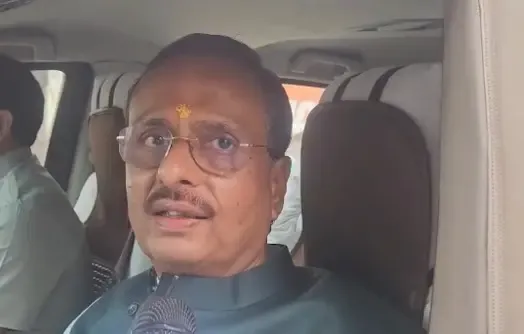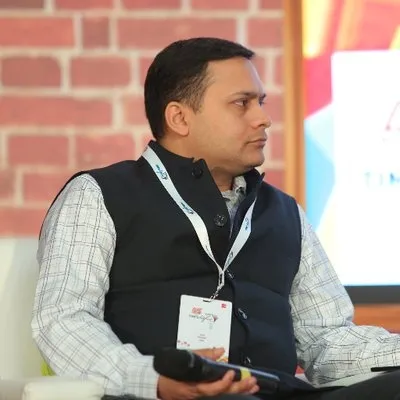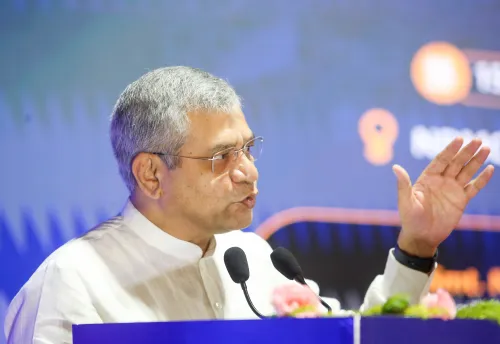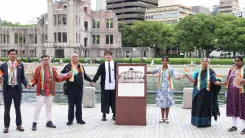Why Did BJP MP Dinesh Sharma Condemn Violence Related to ‘I Love Muhammad’ Slogan?

Synopsis
Key Takeaways
- Dinesh Sharma condemns violence linked to the poster controversy.
- Emphasizes the importance of peace and mutual respect.
- Protests erupted in multiple states, including Uttar Pradesh and Karnataka.
- Authorities have increased security measures in response to unrest.
- Discussion on the balance between free speech and public expression.
Lucknow, Sep 27 (NationPress) BJP MP Dinesh Sharma voiced his strong disapproval of the recent violence associated with the 'I Love Muhammad' poster controversy on Saturday, emphasizing the need for communities to maintain peace and mutual respect. These remarks followed violent protests that erupted in various regions of the nation, notably in Uttar Pradesh and Karnataka.
In an interview with IANS, Sharma stated, “This is not appropriate. No religion teaches violence. The life of Prophet Muhammad serves as a testament to patience and compassion. For instance, a woman who used to throw garbage at him daily was cared for by him when she fell ill. That’s the example to follow—not violence.”
He further remarked, “If the intention behind displaying ‘I Love Muhammad’ pamphlets is love, then why resort to stone pelting? Violence undermines the message. People must not succumb to conspiracies or misinformation meant to incite unrest.”
In a related incident, a planned sit-in by Muslim clerics in Bareilly, Uttar Pradesh, after Friday prayers escalated into violence, although the city witnessed a calmer atmosphere on Saturday.
Following the disturbances, authorities have increased civic and security measures to restore normalcy.
The protests were triggered by alleged derogatory comments about the Prophet. A significant crowd gathered after Friday prayers, many displaying posters with the slogan, “I love Muhammad.”
However, tensions flared when protesters reportedly began throwing stones at police, prompting a lathi charge by law enforcement to disperse the crowd. Reports indicate that over 1,000 demonstrators gathered near Islamia Ground, causing damage to vehicles and engaging with police forces. At least 10 police officers sustained injuries, and around 50 individuals were detained.
The controversy originated on September 4 during the Barawafat (Eid-e-Milad-un-Nabi) procession in Rawatpur, Kanpur, where a group displayed an ‘I Love Muhammad’ banner along the procession route, leading to objections from local Hindu groups.
Police intervened quickly, with DCP Dinesh Tripathi clarifying that government regulations prohibit the introduction of new customs in religious processions. Some individuals had attempted to replace a traditional tent with a new one featuring the banner, but police restored the traditional setup. No specific FIR was filed concerning the banner.
Nonetheless, both Hindu and Muslim factions accused each other of damaging posters during the incident, leading to further confusion despite police intervention.
This incident has sparked protests in multiple states.
In Bareilly, cleric Maulana Tauqeer Raza had organized the sit-in at Islamia Ground, leading authorities to conduct a flag march prior to Friday to prevent disturbances.
Unlike the violence on Friday, the atmosphere in Bareilly has been largely peaceful today, with the municipal corporation starting a cleanup operation to clear debris from the streets.
For safety reasons, police are deployed along routes to Maulana Tauqeer’s residence, ensuring tight surveillance and monitored movement.
The escalation in Bareilly reflects broader tensions regarding religious expression in public spaces. Amid the unrest, AIMIM chief Asaduddin Owaisi questioned the suppression of free speech, stating, “Why were people being stopped from expressing their love for Prophet Muhammad?” He defended the slogan as a mere expression of free speech.
Authorities had anticipated potential unrest, enforcing Section 163, which restricts protests without official approval. Despite this, the protest continued, escalating into violence within hours.









